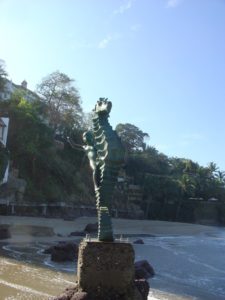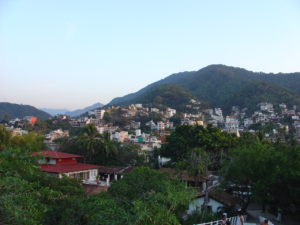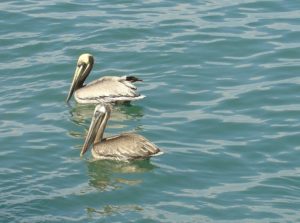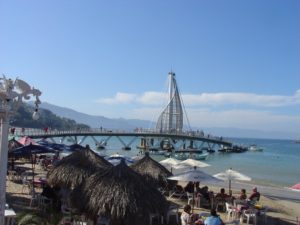Puerto Vallarta
About ten years ago a co-worker, renowned (in our small company) for violently hitting his mouse and keyboard to the point of destruction as he wrote software code, said, “Go to Puerto Vallarta. It’s beautiful and is not so well known to tourists.”
Perhaps I should have booked a flight sooner (about ten years before my coworker told me about the city). The beaches—even the beach of the dead (Playa de los Muertos)—are walled in by tall hotels, with people (yes) lying (not laying) in the sun (happily) drinking things (like light beer), being, well, I won’t use the “t…” word because I’m one of them.
The beaches themselves are public and continue from the south (the part of the dead) several miles north to the marina where one finds tall fences and English signs saying “smile while you are on camera.”
Me? I’m staying in an old section of the city (Zona Romántica), where locals live among the many hostels. I awaken in the morning and look through my window at the interior stairway, through which I can keep an eye on all the tenants (and they, on me):
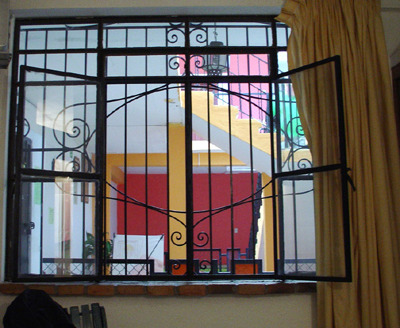
I leave my Hotel del Mar Tradicional (“Tradicional,” added, perhaps, to distinguish it from a beach hotel by the same name):
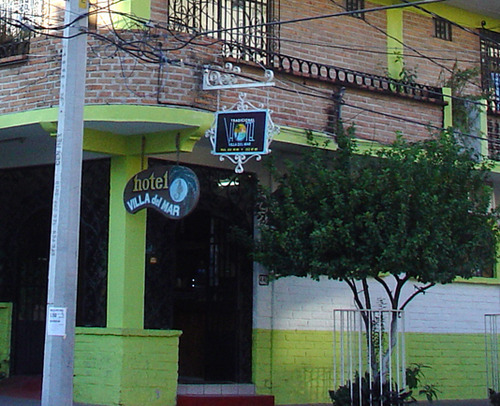
Nearby is a footbridge, 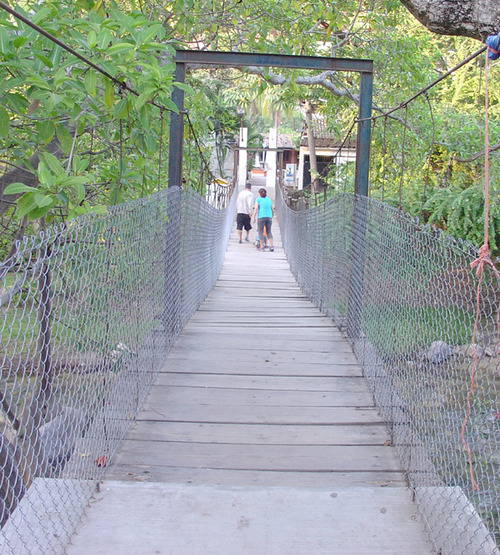
which takes me to an island where crafts and artwork are sold. A stairway to higher ground is built just opposite the footbridge:
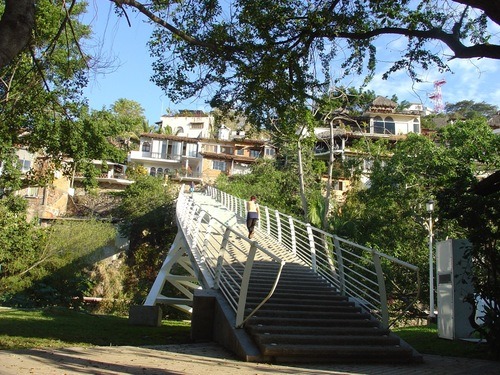
When I had my cataract repaired in December, the post-op nurse told me to “eat comfort food” instead of enjoying typical food. She made a distinction I could not follow. Neither Mindy (my post-operative designated driver) nor I could figure out what—once the truly enjoyable food was ruled out—could comprise “comfort food.” Perhaps I should stop in here and find out:
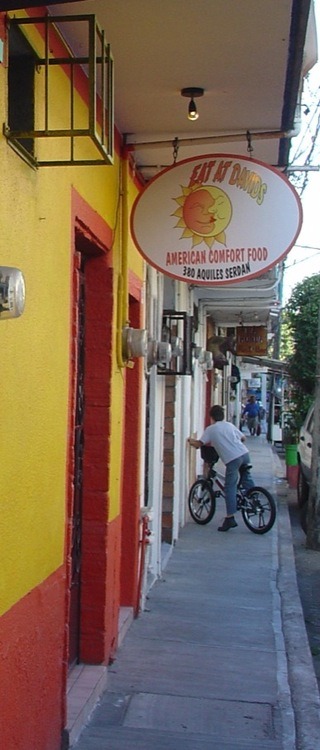
But instead, I go here, where, even if the sign doesn’t mean they want to hug, kiss and hug me, the shelves hold plenty of filtered water:
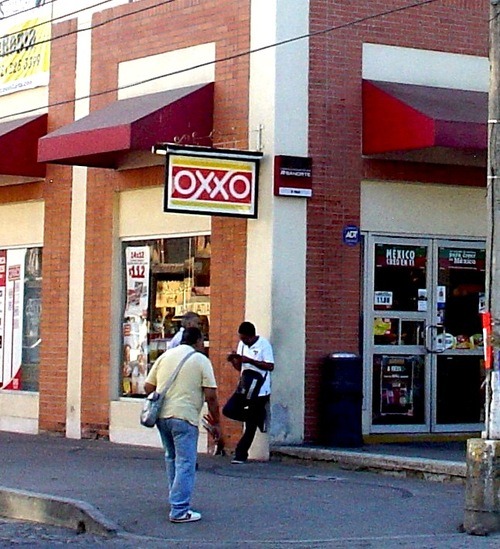
Funny thing happens occasionally when I pay for things. First I divide the cost in pesos by 10 (the approximate conversion rate). At that point I have the US dollar figure in my mind. For example, the shrimp I ate last night was 120 pesos or about $12. Then I reach in my pocket, forgetting that I made an unnecessary conversion, and pull out 12 pesos. Then the clerk patiently says in plain English, “No, no. It is one-hundred-and-twenty pesos.”
The beach, a hand-stitched panoramic view:
Yesterday, running on the beach, I took a breather at a place where the sand was deep and the pedestrians dense (numerically). A Cuban Cigar Vendor approached me. Truly I was interested because I have a friend who would enjoy such a cigar. He asked me what kind I wanted, and, as he asked, pulled out a pipe bearing the image of a marijuana leaf. Softly, he asked, “Or one of these?” Little did he know I’m from Colorado, and, being so, have no need for secrecy, requiring only to be diagnosed with chronic pain or, now, lately, to come out right and request “one of these.” But I have no interest in these and, being on a long run with limited pesos, had no money for the real (Cuban) thing.
Earlier that day, I misunderstood both the words and intentions of the barista. Just then a typically well dressed Mexican man in his thirties turned to me and translated her words. When I seemed indifferent to her suggestion, he said most eloquently, “She intends that out of respect for you.” I’ve encountered such men before in Spanish-speaking cultures. Everything is perfect—their hair, dress, accent, tone of voice, and direct but limited eye contact. One piece of culture worth imitating.
Who knows what people are like behind closed doors or during moments of excitement when making a move to advance oneself (or protect one’s family) presides? As I drank my espresso, I read a book of transcriptions from a man who gave talks at alcoholics anonymous. It interested me, and the other books were in German.
This man, who, for the sake of anonymity, we will call “one of these,” confessed that behind his successes in the advertising agency he was driven nearly to death by guilt, anger, and fear. These proved much harder than alcohol to give up, and they made his membership in the organization invaluable because it was there—and no where else in his life—that nothing was ever demanded of him. The perfect absence of demands undermined his guilt more than anything. We all need at least one person who sees us without guilt.
Today’s coffee occurred twice. First at “The Pancake House,” where my espresso was big but reminiscent of the instant coffee used in parts of South America—and, yes, if you insist I will provide a photo:

So I went to a place I’d heard had bona fide espresso, being told by that barrista that the first espresso was also made from fresh coffee beans:
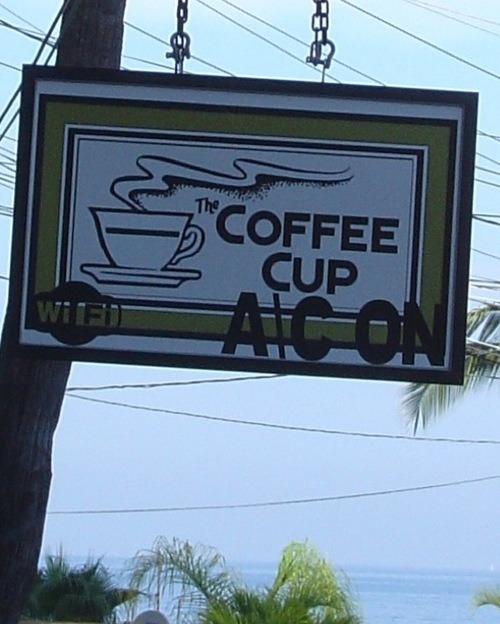
I met this man. His Canadian friends call him “Jorge,” and his Mexican friends “George.” I am masking his face with the pattern from his coffee cup because I promised the photo was for private use:
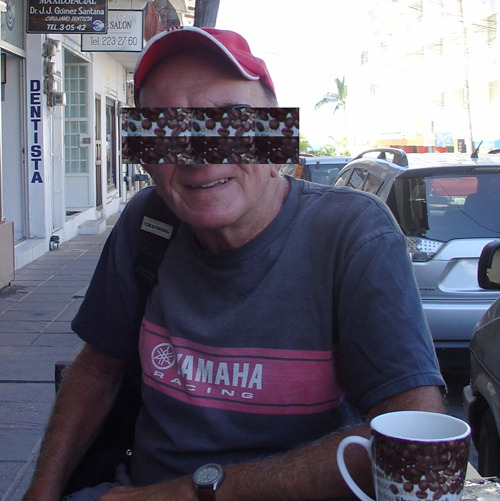
He was the first person I’ve spoken to at length, being fluent in English, a resident here, and friendly.
The roads are mostly cobblestone, and the sidewalks often have a 3 or 4 foot drop-off if you step off the edge, discouraging me from running in town:
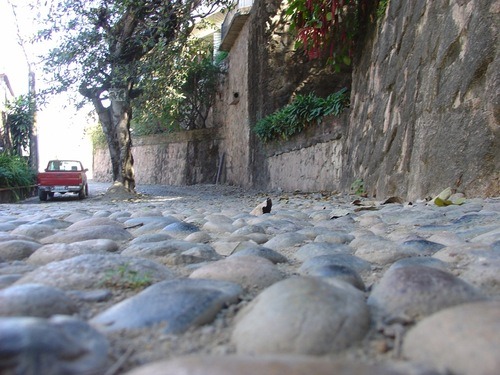
Tonight, I ate at Alaska’s Diner, ordering “pescado piccato,” made with a fish that eats only crab, cooked, by the owner’s confession, with limes rather than lemons, for reasons of supply. Roger, the Alaskan, knows about the steps in Puerto Vallarta. He is closing for the next two days in order to recover from a sprained ankle.
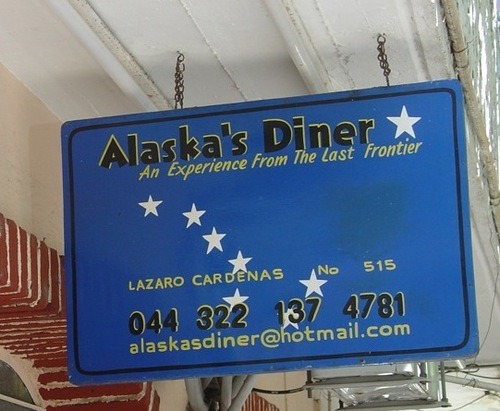
And now a few final photographs. Night!
Another bridge:
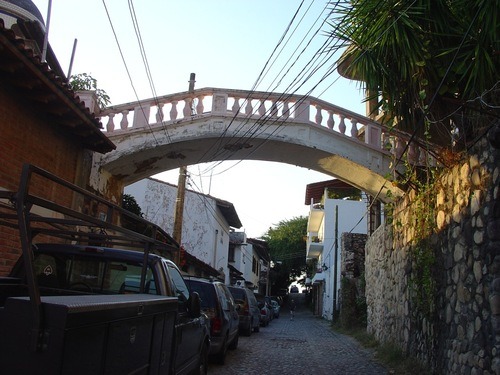
Sun setting:
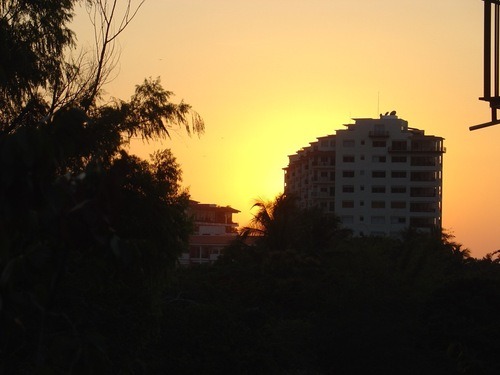
Louis sitting:
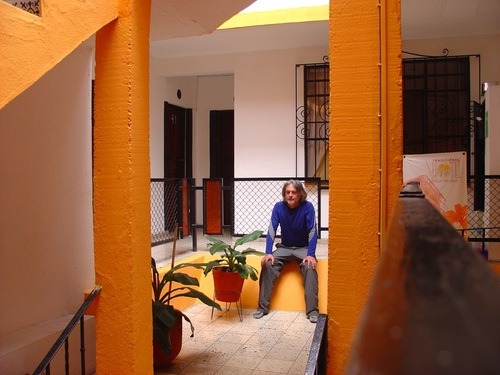
And few more, these clickable.
